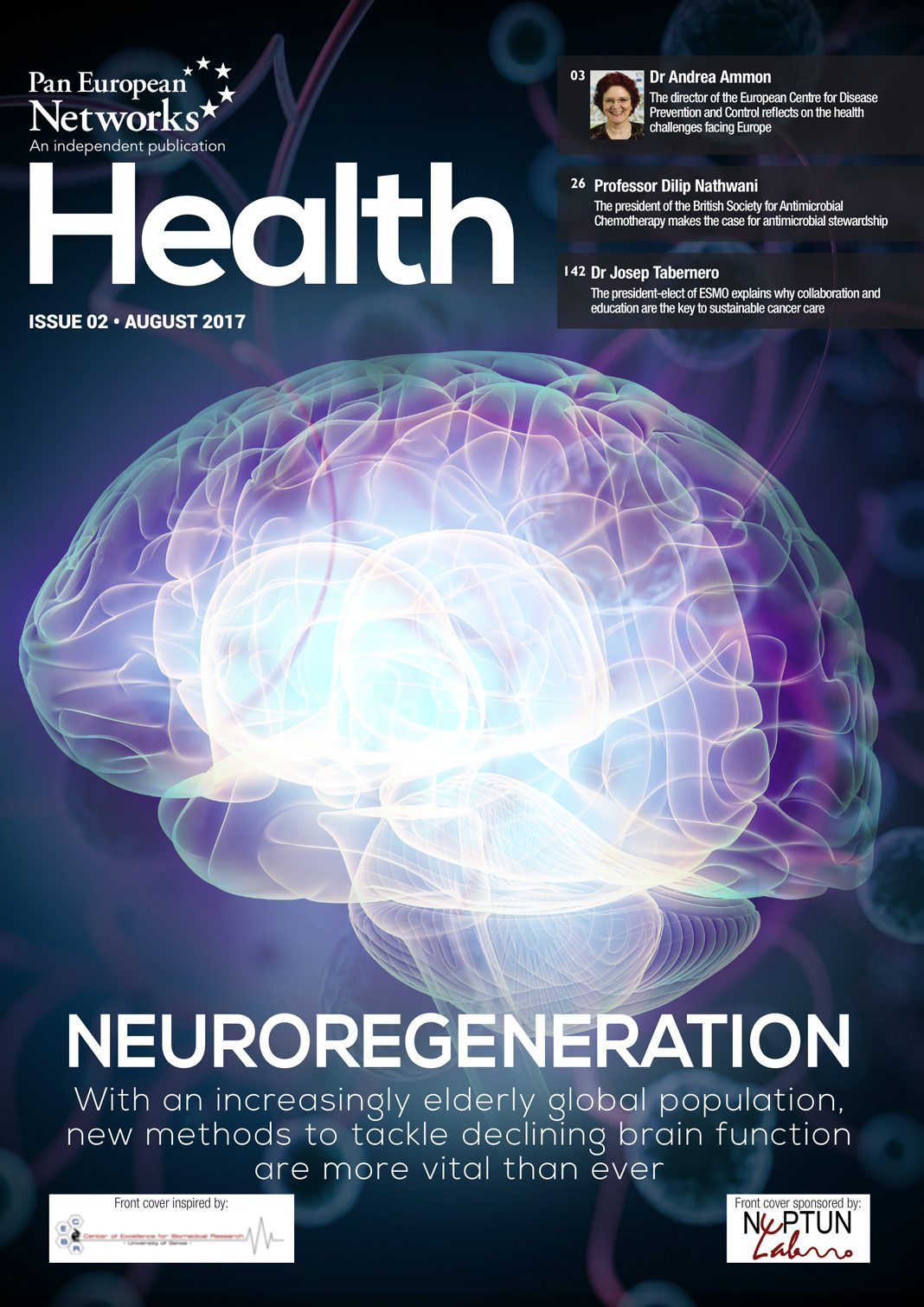The second edition of Health focuses on areas including allergy awareness, infectious diseases, neuroscience and diabetes. It also includes a foreword from Dr Andrea Ammon, director of the European Centre for Disease Prevention and Control (ECDC), who discusses the challenges Brexit will have on the future of healthcare.
How serious is antibiotic resistance?
- Antibiotic resistance has the potential to undermine decades’ worth of progress against ill health and disease. With this in mind, Professor Dilip Nathwani, president of the British Society for Antimicrobial Chemotherapy, outlines the importance of stewardship in the global effort to combat antimicrobial resistance;
- Europe has seen an alarming surge in cases of vaccine-preventable diseases over the past few years. Here, Andrea Rappagliosi, the president of Vaccines Europe, suggests how the EU can strengthen its approach to communicable diseases via more effective vaccination development and programmes; and
- With the complex aetiology of most non-healing wounds and the various medical problems of individuals suffering from them, efficient management of wounds remains a challenge. Current and past presidents of the European Wound Management Association reflect on how best to implement effective wound management.
How is research improving the treatment of cardiac arrhythmias?
- Arrhythmias put sufferers at risk of sudden cardiac death, something the European Heart Rhythm Association (EHRA) dedicates its time to improving. Professor A John Camm of the EHRA outlines some of the present barriers to treating arrhythmias and reducing related mortality; and
- The EHRA White Book was launched by the European Heart Rhythm Association in 2008 to help better understand the national realities about treatment of cardiac arrhythmias. Professor Pekka Raatikainen, chairman of the EHRA White Book Sub-committee, gives an overview of this year’s edition and reflects on the progress made in the field of cardiac arrhythmias.
What’s new in neurodegenerative disease research?
- Dementia affects 850,000 people in the UK and is expected to reach one million by 2021. Against this background, Colin Capper, head of research development at the Alzheimer’s Society, discusses how the charity’s three new centres of excellence will transform dementia care research;
- Parkinson’s and Alzheimer’s diseases are the two most common neurodegenerative conditions, together affecting over eight million people in Europe. Here, Professor Bengt Winblad, representative of the EU Joint Programme – Neurodegenerative Disease Research (JPND), reflects on the success of the BIOMARKAPD initiative, which helped standardise biomarker measurements across Europe; and
- Over recent years virtual reality has become accessible to the common market and can help those suffering with life-changing impairments. Dr Tej Tadi, CEO and founder of MindMaze, discusses how the use of gamification and virtual reality technology can improve post-stroke recovery and rehabilitation.
What challenges lie ahead for rare diseases?
- There are 6,000 rare diseases that are currently known and lots more work needs to be done in making them a priority. Virginie Bros-Facer of EURORDIS-Rare Diseases Europe reflects on the progress being made to tackle rare diseases and considers the challenges that lie ahead; and
- Some 3.5 million people in the UK will be affected by a rare disease at some point in their lifetime, the majority of whom will be children and young people. Nick Meade, director of policy for Genetic Alliance UK, outlines the importance of raising awareness for rare diseases.


